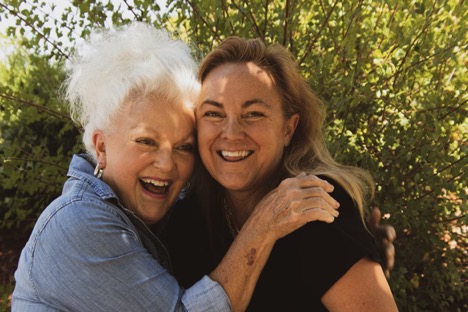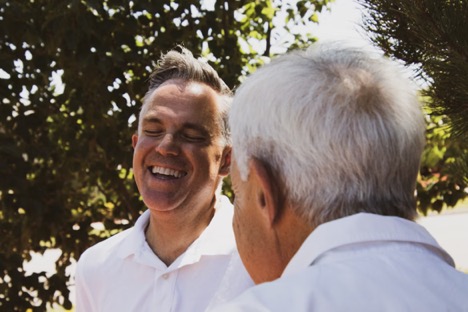In the pursuit of living longer, healthier lives, the concept of anti-aging has gained significant attention. While aging is a natural process, understanding and implementing preventive measures have emerged as crucial strategies in slowing down its effects.
This exploration into the role of prevention in anti-aging methods delves into the importance of adopting proactive approaches rather than reactive treatments.
The Role of Prevention in Anti-Aging
When it comes to anti-aging, prevention is truly the name of the game. A major part of this involves understanding preventive measures that can help us age gracefully and maintain our vitality.
Instead of waiting for signs of aging to show up and then trying to fix them, prevention focuses on taking proactive steps to slow down the aging process before it even starts taking a toll.
The benefits of prevention over reactive treatments are immense! By adopting a preventive approach, we can avoid the stress and expense of trying to reverse the effects of aging later on.
But you might wonder, does prevention really work? Well, the good news is that there’s solid evidence supporting the effectiveness of preventive practices in slowing down aging.
Numerous studies have shown that certain things can make a remarkable difference in how we age, like:
- A balanced diet
- Regular exercise
- Proper skincare
- Stress management
- Sufficient sleep
Key Anti-Aging Preventive Strategies
You’ve probably heard the saying, “You are what you eat,” and when it comes to anti-aging, it couldn’t be more true!
One of the fundamental pillars of preventive strategies is maintaining a balanced and nutrient-rich diet. This means incorporating a variety of fruits, vegetables, whole grains, lean proteins, and healthy fats into our meals.
These nutrients play a crucial role in supporting our overall health and can help combat the aging process from within.
When it comes to specific anti-aging foods, there are some real powerhouses out there. Foods rich in antioxidants, such as berries, leafy greens, and nuts, can help protect our cells from oxidative stress, a major contributor to aging.
Omega-3 fatty acids found in fatty fish like salmon and chia seeds are not only beneficial for heart health but also help keep our skin supple and hydrated, reducing the appearance of wrinkles.
Hydration is often underestimated in the fight against premature aging! Staying well-hydrated is essential for maintaining healthy skin and preventing the development of fine lines and wrinkles.
It helps to keep our skin plump and glowing while also supporting other vital bodily functions. So, remember to drink plenty of water throughout the day, and if you’re looking to switch it up, herbal teas and water-rich fruits and vegetables can also contribute to your hydration goals.
Physical Activity and Exercise
Regular exercise has a remarkable impact on the aging process, offering a wealth of benefits that extend far beyond just staying in shape.
Engaging in physical activity has been shown to be a potent tool in slowing down the aging clock. As we age, our muscles naturally lose strength and mass, and our bones become more fragile.
However, consistent exercise, especially a combination of aerobic and resistance training, can help preserve muscle mass and bone density, reducing the risk of age-related conditions like sarcopenia and osteoporosis.
Moreover, exercise boosts blood circulation, delivering essential nutrients and oxygen to our cells, which aids in maintaining overall organ function and skin health.
To reap the anti-aging benefits of exercise, the experts at eng.banobagi.com recommend a well-rounded fitness routine. Aerobic exercises like brisk walking, jogging, swimming, or cycling can enhance cardiovascular health, increase lung capacity, and boost energy levels.
Resistance training, such as weightlifting or bodyweight exercises, strengthens muscles, tendons, and bones, providing support for the body’s structure.
Flexibility exercises like yoga or stretching routines can improve joint mobility and reduce the risk of injury, helping us maintain our agility and flexibility as we age.
Stress Management
The link between chronic stress and premature aging is a significant aspect of the anti-aging puzzle. When we experience stress, our bodies release hormones like cortisol, which, in small amounts, help us deal with immediate challenges.
However, chronic stress leads to prolonged exposure to these hormones, which can have detrimental effects on our health and accelerate the aging process. High cortisol levels can damage our skin’s collagen, leading to wrinkles and a dull complexion.
Stress reduction techniques play a crucial role in counteracting the negative effects of chronic stress and promoting anti-aging benefits.
Practices like meditation, deep breathing exercises, and mindfulness can help calm the mind and reduce stress levels.
Prevent Aging Today
As we continue to explore and implement these preventive strategies, we can pave the way for a future where aging is not only embraced as a natural process but also celebrated as a journey of enhanced quality of life and longevity.
Let us prioritize prevention and embark on a path of healthier aging, ultimately embracing the gift of a fulfilling and vibrant life.




No Comments